Blog
Can Acupuncture Treat Plantar Fasciitis?

Traditional Chinese Medicine is grounded in the belief that acupuncture can help reduce the amount of pain patients experience when acupuncture points around the body are stimulated. Clinical studies have shown that acupuncture has proven quite useful in the treatment of a wide range of disorders and disharmonies. But can it help people suffering from Plantar Fasciitis? Let’s take a more in-depth look at this disorder and how acupuncture might help overcome it.
What Is Plantar Fasciitis?
This disorder is an inflammation of the Plantar Fascia ligament located on the bottom of the foot that results in heel pain. Plantar Fasciitis is so widespread that Podiatry Today says it’s at pandemic levels. Some studies report that one in six Americans suffers with this condition.
The Plantar Fascia ligament is the foundation for the arch of the foot. When you place too much pressure on it, the ligament might develop a small tear. If it continues to stretch or tear over an extended period, it might become inflamed. This inflammation is what causes Plantar Fasciitis. The pain can often be sharp or stabbing. Usually, it will be the most intense in the morning. It will become duller as you move, but if you’ve been sitting or standing in the same place for a while, it will re-occur. If you exercise, the pain will often be most intense after you’ve finished working out.
There are a few risk factors to be aware of. First, this condition tends to be most common among people between 40 and 60 years old. Flat-footed people might also be at a higher risk of this condition. It’s also possible that being overweight might increase the risk of developing Plantar Fasciitis. It’s also most common amongst people who spend a lot of time on their feet.
How Is Plantar Fasciitis Diagnosed?
If you believe you have Plantar Fasciitis, you’ll need to get it diagnosed. The diagnosis will allow you to start treatment as soon as possible. To identify this condition you’ll need a physical examination by a medical doctor or podiatrist. They will ask you about the type of pain you’re experiencing and perform a throughout exam to rule out other potential ailments.
How Should You Treat Plantar Fasciitis?
Often, Plantar Fasciitis will last for a few months. During this time, there are a few ways you can reduce the pain and speed up the healing process. First, you might want to apply a heating pad, which will increase the flow of blood that will help clear out the inflammation. You might also want to stretch and massage the affected area. It’s also recommended that you rest the foot and try to reduce the amount of time you spend standing up.
How Can Acupuncture Help?
If you’ve developed Plantar Fasciitis, you’ll probably experience a considerable amount of pain. As a result, you’ll want effective treatment. Many studies have shown that acupuncture can be a valuable treatment option. Let’s take a closer look at some of the benefits acupuncture can provide.
Pain Relief
Acupuncture practitioners believe that the pain receptors around the body control the pain you experience. By stimulating specific acupuncture points, acupuncturists can affect local nerve endings. This stimulation will help provide pain relief. It will also affect your brain. Studies have shown that there is less activity in the parts of the brain that process pain during an acupuncture session. These effects don’t take long to manifest. Typically, it takes just a few treatments before the pain starts to fade.
Improved Sleep
Because Plantar Fasciitis can be painful, it can make it harder for you to fall asleep at night. This can have significant impacts on your quality of life. For example, you might find it more challenging to focus at work. During acupuncture, you’ll be placed into a more relaxed state that can make it easier for you to overcome the pain and get a good night’s sleep.
Improved Mental Health
Plantar Fasciitis might also affect your mental health. Trying to deal with the pain might make you feel depressed. It’s also possible that you might feel stressed, especially if it affects your performance at work. Acupuncture can help you overcome these problems. A range of acupuncture points can be targeted to help you feel more relaxed. Because of this, many patients report feeling calmer at the end of their session.
Drug-Free Treatment
While your doctor might prescribe painkillers, many people want to take a natural approach to manage pain. This approach will ensure you don’t get addicted to painkillers. Some people might also have an allergic reaction to these substances. Because no drugs are involved, acupuncture is one of the safest ways to treat the discomfort caused by Plantar Fasciitis.
How Long Does An Acupuncture Session Last?
One of the benefits of acupuncture is that it treats you like an individual. The practitioner will tailor the treatment based on your needs. In general, though, the session will last for between half-an-hour to an hour. In most cases, the needles will be left in your skin for around 28 minutes.
The number of sessions you’ll need will also vary based on your condition. As we mentioned, most people will feel relief after four to five treatments. However, you might want to continue getting acupuncture to help you continue to manage the pain during the recovery period. It’s best to talk about your condition with your licensed acupuncturist to develop a plan that will work for you.
Conclusion
Plantar Fasciitis is a widespread condition. It affects one in six Americans. It can cause shooting pain in your foot, and the discomfort can often take months to go away. Thankfully, there is an effective way to treat this pain: acupuncture. It can help you improve your quality of life, without drugs. If you have Plantar Fasciitis, consider booking an appointment with a licensed acupuncturist to find out how they can help.









